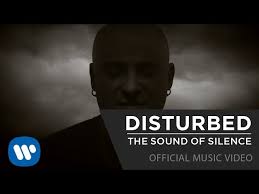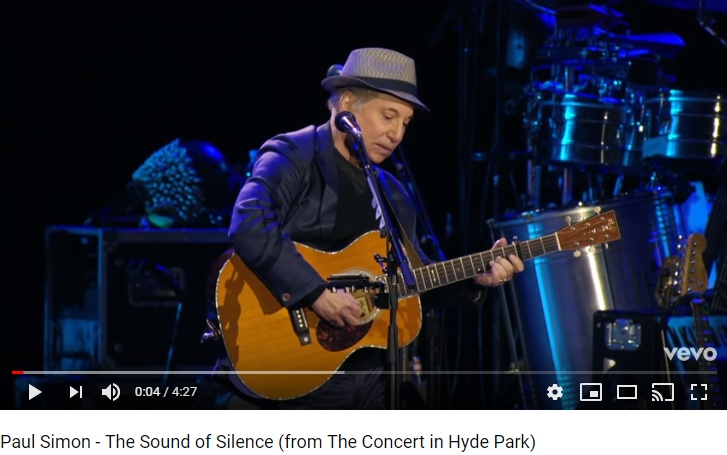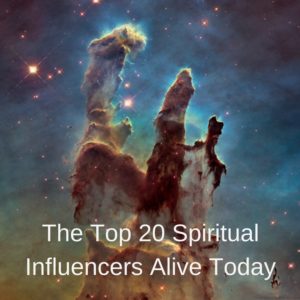 Today, people of every culture interconnect in our common search to find the meaning of life. Many believe the key to unlocking happiness and health is gained by spiritual enlightenment. They identify with spiritual influencers whose message rings true to the foundation of their existing beliefs. Some find influencers who offer interesting insights into alternate spiritual views. And some discover spiritual influencers who entirely shift their paradigm, opening hidden passages for understanding their place in the universe—an interconnected, conscious universe in which we’re all part.
Today, people of every culture interconnect in our common search to find the meaning of life. Many believe the key to unlocking happiness and health is gained by spiritual enlightenment. They identify with spiritual influencers whose message rings true to the foundation of their existing beliefs. Some find influencers who offer interesting insights into alternate spiritual views. And some discover spiritual influencers who entirely shift their paradigm, opening hidden passages for understanding their place in the universe—an interconnected, conscious universe in which we’re all part.
Our conscious interconnected world is going through an enormous spiritual awareness change. Thanks to the internet and social media, we have far more access to influencers who have amazing grasps on human spirituality. Cyberspace is the new spiritual frontier. Many of the trailblazers are spiritual pioneers who have immense numbers of digitally connected followers. They understand the power of the web. They also know how to tap extraordinary states of consciousness and help others to find inner peace within cosmic chaos.
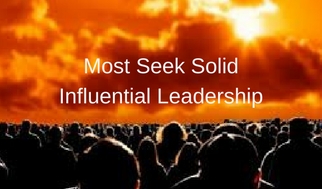 These world wide web followers aren’t all new age junkies seeking a trip with the next trendy mystic. Most are seeking solid, influential leadership. They’re looking for leaders with depth of character that match the reach of their cyber connections—spiritual influencers with integrity, wisdom, perseverance, discernment and, above all, genuine honesty and appreciation of truth. They’re the same characteristics people want for themselves.
These world wide web followers aren’t all new age junkies seeking a trip with the next trendy mystic. Most are seeking solid, influential leadership. They’re looking for leaders with depth of character that match the reach of their cyber connections—spiritual influencers with integrity, wisdom, perseverance, discernment and, above all, genuine honesty and appreciation of truth. They’re the same characteristics people want for themselves.
Testaments to a higher power were once confined to scriptures and church pews. The information revolution drastically changed delivery of spiritual guidance. But the digital age hasn’t really changed message content. Now it’s far easier to get facts or at least acquire influential opinions of universal truths. The responsibility to appreciate spiritual guidance and put it to practical living still remains with the individual. It always has and always will. Spirituality is about personal choice and growth as a human being.
Watkins Books of London, England has encouraged spiritual discovery for 120 years. This esoteric bookshop specializes in works that promote contemporary spiritualism, self-development, mysticism and perennial wisdom. Every year, Watkins publishes a list of the world’s top 100 most spiritually influential people alive today. They’ve just released the 2017 list in the latest edition of the Watkins Mind Spirit Body magazine. It’s an interesting mix of minds.
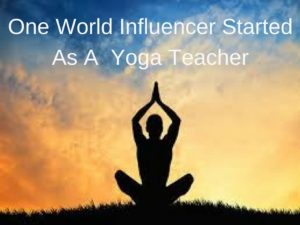 Some are conventional heads of mainstream religious organizations. Some are high-profile media personalities. Some are leaders with political agendas. Some are journalists, writers, actors, philosophers and opportunists. One started as a yoga teacher. Another is a young female victim of violence. And still another is a musician and songwriter. His singing voice might not be for everyone but his words have phenomenal persuasive power.
Some are conventional heads of mainstream religious organizations. Some are high-profile media personalities. Some are leaders with political agendas. Some are journalists, writers, actors, philosophers and opportunists. One started as a yoga teacher. Another is a young female victim of violence. And still another is a musician and songwriter. His singing voice might not be for everyone but his words have phenomenal persuasive power.
Watkins doesn’t pull these names from a hat. They look at the individual’s track record, their reach and their influence on the masses. Although all who made the list are varied in age and ethnic background, they have much in common. In fact, they have one universal trait. They’re all excellent communicators. They’re media savvy, technologically switched-on and they make good use of it.
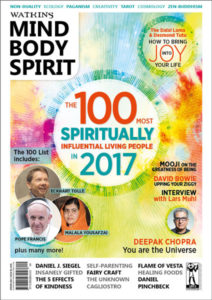 Watkins has three main criteria for selecting who’s on the Top 100 Most Spiritually Influential List.
Watkins has three main criteria for selecting who’s on the Top 100 Most Spiritually Influential List.
- The person has to be alive as of January 1st, 2017.
- The person has to have made a unique and spiritual contribution on a global scale.
- The person is frequently Googled, appears in Nielsen Data, has a Wikipedia page, and is actively talked about throughout the internet. By taking into account the number of times that a person is Googled or how many times their Wikipedia profile is viewed, the list gains a highly democratic and transparent parameter.
Watkins is very selective in creating this list and does their best to remove candidates who spread hateful or intolerant messages. Ultimately, this list is meant to celebrate the positive influence of today’s spiritual teachers. You can read the entire list in the spring edition of Watkins Mind Body Spirit magazine but here’s a rundown on the spiritual influencers who made the Top 20.
20. Iyanla Vanzant
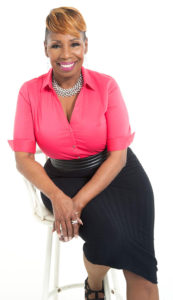 Iyanla Vansant is a 63-year-old African American lawyer, motivational speaker and spiritual guidance teacher best known for her spiritual books and many appearances on the Oprah Winfrey show. She also has her own syndicated TV talk program. Although Vanzant holds a position as an ordained priestess in the African Yoruba tradition, she’s widely referred to as the high priestess of healthy relationships.
Iyanla Vansant is a 63-year-old African American lawyer, motivational speaker and spiritual guidance teacher best known for her spiritual books and many appearances on the Oprah Winfrey show. She also has her own syndicated TV talk program. Although Vanzant holds a position as an ordained priestess in the African Yoruba tradition, she’s widely referred to as the high priestess of healthy relationships.
Yoruba beliefs are an anchor to Vanzant’s spiritual beliefs and teachings. They hold that all people are part of one great spirit that eventually reunites in an afterlife. While on earth, each person is spiritually responsible for interacting with all other living things including the Earth itself. Life and death are cycles of existence and by growing spiritually each person achieves transcendence into a unified balance. Enlightenment is found in balance while living and through meditative prayer.
Iyanla Vanzant was born into poverty as Rhonda Eva Harris to a Brooklyn projects single mother on welfare. She developed herself through education and spiritual commitment to repeatedly being on the New York Times bestseller list and winning an Emmy. Her words of spiritual wisdom are:
“What I have learned from all of the difficulties in my own life is that human beings have very thick skin. I call that skin our spirit, our Highest Most Powerful self. Spirit is the key to everything we desire. It is our weatherproofing, our Teflon, our line of credit that assures if we just keep putting one foot in front of the other, one day; there will be a miraculous payoff.”
19. Arianna Huffington
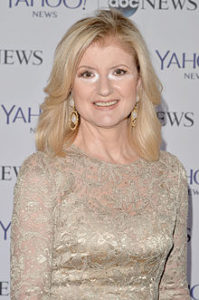 While most people are familiar with Arianna Huffington from her days as a journalist and the creator of the online news aggregator, The Huffington Post (now the HuffPost), she has an immense spiritual and social conscience behind her. This is especially true in promoting women’s issues and addressing the serious issues of workplace fatigue and sleep deprivation.
While most people are familiar with Arianna Huffington from her days as a journalist and the creator of the online news aggregator, The Huffington Post (now the HuffPost), she has an immense spiritual and social conscience behind her. This is especially true in promoting women’s issues and addressing the serious issues of workplace fatigue and sleep deprivation.
Huffington has a life-long interest in spirituality. She’s been involved in the Rajneesh Movement of Spiritual Inner Awareness and published a self-help book The Fourth Instinct followed by Thrive. Her latest release The Sleep Revolution—Transforming Your Life, One Night at a Time is extremely influential in tackling stress caused by lack of proper sleep which causes immense spiritual drain.
Arianna Huffington is 66 and was born to working-class parents in Greece, becoming a naturalized American citizen. She’s now devoting her time and considerable wealth to her new startup, Thrive Global which is a net-based platform focusing on health and wellness. Huffington’s view is that people must rise above the basic instincts of survival, power and sex to find higher and better selves. A great Arianna Huffington quote is:
“We need to accept that we won’t always make the right decisions, that we’ll screw up royally sometimes – understanding that failure is not the opposite of success, it’s part of success.”
18. Tony Robbins
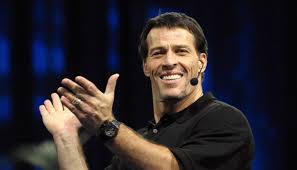 Anthony “Tony” Robbins is a well-known 57-year-old American motivational speaker, businessman and author. Robbins grew up in North Hollywood, California in a broken household with a dead-beat dad and an addicted mom. He parlayed a great personality and exceptional speaking skills into presenting on infomercials. He did this while working as a night janitor and now earns an estimated $30 million monthly.
Anthony “Tony” Robbins is a well-known 57-year-old American motivational speaker, businessman and author. Robbins grew up in North Hollywood, California in a broken household with a dead-beat dad and an addicted mom. He parlayed a great personality and exceptional speaking skills into presenting on infomercials. He did this while working as a night janitor and now earns an estimated $30 million monthly.
Tony Robbins is an expert in Neurolinguistics Programming (NLP) and developed peak performance coaching. This led to a large television and live audience exposure. He’s a highly sought-after speaker and veteran of many TED Talks. People describe Robbins’s performances as “mesmerizing”. He’s also the author of the motivational books Unlimited Power, Awake the Giant Within, Money: Master the Game and Unshakeable.
Since 1991, Tony Robbins has been a prominent philanthropist and spiritual leader. He has millions of devoted followers and contributes to causes like education in prisons and donating to over 100,000 health and human service organizations. One of Tony Robbins’s many sponsorships provides fresh drinking water to 100,000 people per day in India, preventing waterborne diseases that are the leading cause of child deaths in South Asia. Robbins is quoted saying:
“Setting goals is the first step in turning the invisible into the visible. If you do what you’ve always done, you’ll get what you’ve always gotten. It is in your moments of decision that your destiny is shaped.”
17. David Lynch
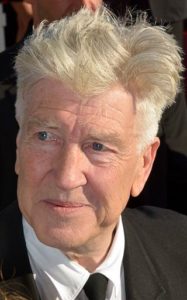 At 71, David Keith Lynch is one of the most spiritually influential people in the international film industry. He was raised in middle-class America and excelled at film producing, directing, screenwriting as well as being an accomplished musician, painter and still photographer. He’s best known for productions like Elephant Man and is the recipient of top awards from Cannes and Venice film festivals.
At 71, David Keith Lynch is one of the most spiritually influential people in the international film industry. He was raised in middle-class America and excelled at film producing, directing, screenwriting as well as being an accomplished musician, painter and still photographer. He’s best known for productions like Elephant Man and is the recipient of top awards from Cannes and Venice film festivals.
David Lynch adamantly promotes Transcendental Meditation (TM) as the core principle to his spiritual awareness mission. Lynch directly studied under TM’s founder, Maharishi Mahesh Yogi and became a lifelong TM practitioner. His David Lynch Foundation uses TM specifically for targeting at-risk youths, women victims of violence and veterans suffering from PTSD.
Since 2005, the David Lynch Foundation has treated over 500,000 people and is rapidly expanding. Lynch has plans for an $8 billion corporate investment in worldwide wellness centers using TM techniques for spiritual enlightenment. Here’s how David Lynch puts it:
“I started Transcendental Meditation in 1973 and have not missed a single meditation ever since. Twice a day. Every day. It has given me effortless access to unlimited reserves of energy, creativity and happiness deep within. This level of life is sometimes called “pure consciousness”—it is a treasury. And this level of life is deep within us all.
But I had no idea how powerful and profound this technique could be until I saw firsthand how it was being practiced by young children in inner-city schools, veterans who suffer the living hell of post-traumatic stress disorder and women and girls who are victims of terrible violence. TM is, in a word, life changing for the good.
In 2005, we started the David Lynch Foundation for Consciousness-Based Education and World Peace to ensure that every child anywhere in the world who wanted to learn to meditate could do so. Now, the Foundation is actively teaching TM to adults and children in countries everywhere.
How are we able to do it? Because of the generosity of foundations and philanthropists and everyday people who want to ease the suffering of others—and who want to help create a better world. If you don’t already meditate, take my advice: Start. It will be the best decision you ever make.”
16. Fethullah Gulen
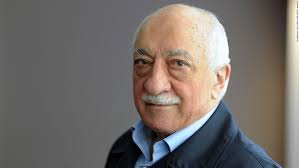 Fethullah Gulen is an Islamic iman and founder/leader of the Gulen Movement which promotes moderate Muslim teachings and practices. His exact birthdate is not clear as he was born in an impoverished Turkish village about 76 years ago. He became highly influential in the international Muslim community as a thinker, scholar, author, poet and educational activist who supports interfaith religious tolerance and opposes turning spiritual faith into political violence.
Fethullah Gulen is an Islamic iman and founder/leader of the Gulen Movement which promotes moderate Muslim teachings and practices. His exact birthdate is not clear as he was born in an impoverished Turkish village about 76 years ago. He became highly influential in the international Muslim community as a thinker, scholar, author, poet and educational activist who supports interfaith religious tolerance and opposes turning spiritual faith into political violence.
Gulen’s modern Islamic views and international influence did not sit well with hardline Turkish power leaders. He’s been charged with masquerading as a moderate while actively supporting subversive groups. Turkey has him on their terrorist list and is attempting extradition from the United States where Gulen is currently living in exile. The U.S. is refusing to cooperate and recognizes the Gulen Movement as a legitimate and influential spiritual force.
Fethullah Gulen is a strong supporter of science and education, seeing science and faith as compatible and complementary. He embraces all of humanity, regardless of faith, to progress with scientific advancements that make the world a safer and more spiritually prosperous place. Here’s what Gulen, one of the most influential Islamic leaders alive, has to say:
“Be so tolerant that your bosom becomes wide like the ocean. Become inspired with faith and love of human beings. Let there be no troubled souls to whom you do not offer a hand and about whom you remain unconcerned.”
15. Alejandro Jodorowsky
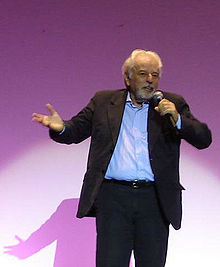 Described as a “graffiti artist for the soul”, Alejandro Jodorowsy is Chilean-born filmmaker turned spiritual mystic. He’s 88 and spends his entire energetic time working freely for the benefit of others to discover spirituality within themselves through what Jodorowsky calls “psychoshaminism” and “psychomagic”.
Described as a “graffiti artist for the soul”, Alejandro Jodorowsy is Chilean-born filmmaker turned spiritual mystic. He’s 88 and spends his entire energetic time working freely for the benefit of others to discover spirituality within themselves through what Jodorowsky calls “psychoshaminism” and “psychomagic”.
Jodorowsky originally dropped out of school to become a clown and a mime before founding his own theater group that caught John Lennon’s attention. Lennon began to fund Jodorowsy’s film works and became influential in exposing Jodorowsky to Transcendental Meditation which Lennon was studying under Maharishi Mahesh Yogi in India. Jodorowsky went on take TM principles and branch off into his own style of spiritual awareness.
Alejandro Jodorowsy is better known in Europe than America. He’s used his film works to open the gates of illumination where “Psychomagic” is introduced through visual means to “enlighten the soul”. Jodorowsky says it’s his shamanic model of therapeutic self-healing where the practitioner works within their unconscious mind. He also says:
“Any person who has read a little psychoanalysis, Freud, Jung, knows that we have a collective unconscious: the myths, they are necessary for rationalizing the contents of the unconscious. In history there were lots of myths. We all have myths — except in America. In America, you have superman.”
14. Matthew Fox
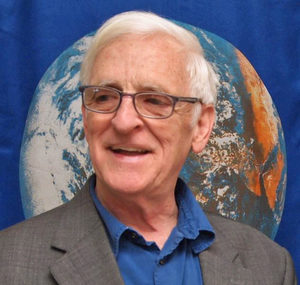 Timothy James “Matthew” Fox is an American theologian who founded Creation Spirituality in the mid-1990’s after he was expelled from the Episcopal Church for unorthodox teaching. Prior to that, he was a Roman Catholic priest who locked horns with the Vatican. Mathew Fox is 77 and lives in America where he heads his Legacy Foundation.
Timothy James “Matthew” Fox is an American theologian who founded Creation Spirituality in the mid-1990’s after he was expelled from the Episcopal Church for unorthodox teaching. Prior to that, he was a Roman Catholic priest who locked horns with the Vatican. Mathew Fox is 77 and lives in America where he heads his Legacy Foundation.
Creation Spirituality draws on mystical teachings of early Christianity and sets them in line with modern day concerns for blending human spirituality with environment concerns. It’s a “green” theology that has a huge following of new age seekers and converted disciples from many faiths including Christians, Muslims, Hindus, Buddhists and Jews who seek a holy relationship with nature.
Matthew Fox is a highly influential speaker and author. He’s described, ““Matthew Fox might well be the most creative, the most comprehensive, surely the most challenging religious-spiritual teacher in America. He has the scholarship, the imagination, the courage, the writing skill to fulfill this role at a time when the more official Christian theological traditions are having difficulty in establishing any vital contact with either the spiritual possibilities of the present or with their own most creative spiritual traditions of the past….He has, it seems, created a new mythic context for leading us out of our contemporary religious and spiritual confusion into a new clarity of mind and peace of soul, by affirming rather than abandoning any of our traditional and fundamental beliefs.” On fundamentalism, Mathew Fox says:
“I don’t think that fundamentalism has anything to do with Jesus Christ. They call themselves Christians, but if that’s Christian, count me out. Fundamentalism is built on fear and greed. They’re telling you to give them your money otherwise you’re going to hell.”
13. Alice Walker
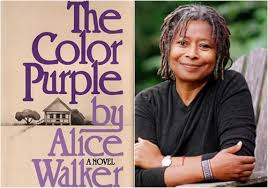 Alice Malsenior Walker is best known for her book The Color Purple which she won a Pulitzer Prize for best fiction. It went on to become a Steven Speilberg movie with Oprah Winfrey and Whoopi Goldberg. Since then she’s been a prolific writer and strong social activist, particularly for supporting rights of black women.
Alice Malsenior Walker is best known for her book The Color Purple which she won a Pulitzer Prize for best fiction. It went on to become a Steven Speilberg movie with Oprah Winfrey and Whoopi Goldberg. Since then she’s been a prolific writer and strong social activist, particularly for supporting rights of black women.
Walker was born to poor black plantation owners. She was blinded in one eye after being intentionally shot with a BB-gun which she credits with “being able to really see people and things, really noticing relationships and learning to be patient enough to care about how they turned out.” Walker rose from poverty through education and her writings. She was an editor at Ms. Magazine and then founded her own feminist publishing company Wild Tree Press.
Alice Walker is also known and respected for her activism in human rights not only in America but internationally. She coined the term “womanism” to make her following inclusive of all people regardless of gender, race or religious faith. Walker is a champion of the economically, spiritually and politically oppressed. At 73, Alice Walker has boundless energy and devotes it to helping others. She has a great quote about aging:
“In South Korea, they believe that when you turn 60, you’ve become a baby again and the rest of your life should be totally about joy and happiness, and people should leave you alone, and I just think that that’s the height of intelligence.”
12. Thomas Monson
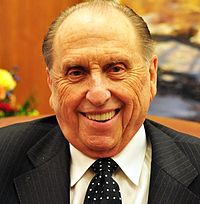 Thomas Spencer Monson is the president and leader of the Church of Jesus Christ and Latter-day Saints, also known as the Mormons. Monson is considered by his followers to be a “prophet, saint and revelator”. He was a printer by trade but dedicated his life to the Mormon Church. At 89, Monson has removed himself from many church affairs due to failing health but still heads a collective group of nearly 16 million LDS Church faithful.
Thomas Spencer Monson is the president and leader of the Church of Jesus Christ and Latter-day Saints, also known as the Mormons. Monson is considered by his followers to be a “prophet, saint and revelator”. He was a printer by trade but dedicated his life to the Mormon Church. At 89, Monson has removed himself from many church affairs due to failing health but still heads a collective group of nearly 16 million LDS Church faithful.
Thomas Monson has an extensive education and honorary degrees. He served in the U.S Navy at the close of World War 2 but was not in active combat. He’s been a presidential advisor for religious and private sector initiatives as well as a prominent leader in the Boy Scouts of America. He’s a staunch conservative and registered Republican who maintains strict religious doctrine, particularly in the institution of marriage that is sacred to Mormons.
Thomas Monson has served as a Mormon missionary around the world. Here are his words on missionary service:
“I counseled many returning missionaries. I interviewed 1,700 missionaries all over the world. My advice to them is that you should study and prepare for your life’s work in a field that you enjoy.”
11. Malala Yousafzai
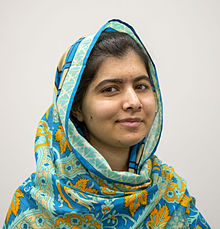 At 19, Malala is the youngest spiritual influencer on the Watkins list and she’s a powerful one. She’s widely known as the Nobel Prize laureate who was shot in the head by Pakistani Taliban for promoting girls’ education rights on her blog. Malala made a full recovery from her near-fatal brain injury and has gone on to become one of the world’s most recognizable women who meets world leaders and addresses Parliaments and the United Nations.
At 19, Malala is the youngest spiritual influencer on the Watkins list and she’s a powerful one. She’s widely known as the Nobel Prize laureate who was shot in the head by Pakistani Taliban for promoting girls’ education rights on her blog. Malala made a full recovery from her near-fatal brain injury and has gone on to become one of the world’s most recognizable women who meets world leaders and addresses Parliaments and the United Nations.
In 2008, Malala was selected from a competition to write a youth blog for the BBC. She was 11at the time. Her strong written and verbal skills quickly gained acceptance from dedicated blog followers. On October 9, 2012 Malala wrote a post criticizing the Taliban. For this, she was sentenced to death and a Taliban gunman was sent to silence this teenage girl.
Malala is a tremendous personality and role model, especially for young women in developing nations. Currently, she lives in Birmingham, England and heads a number of international groups that promote spiritualism and the betterment for all cultures. Malala is a highly-influential change advocate and is quoted saying about traditions:
“Traditions are not sent from heaven, they are not sent from God. It is we who make cultures and we have the right to change it and we should change it.”
10. Deepak Chopra
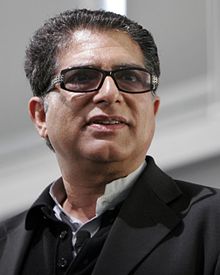 There’s no denying the incredible following Deepak Chopra earned, regardless of the criticism he’s received from the scientific community. Chopra is 70 and of Asian Indian descent. He immigrated to the States in 1970 and is a licensed medical practitioner in internal medicine and endocrinology. In the 1980’s, Chopra began new age studies and quickly grew a dedicated sphere of influenced spiritual seekers.
There’s no denying the incredible following Deepak Chopra earned, regardless of the criticism he’s received from the scientific community. Chopra is 70 and of Asian Indian descent. He immigrated to the States in 1970 and is a licensed medical practitioner in internal medicine and endocrinology. In the 1980’s, Chopra began new age studies and quickly grew a dedicated sphere of influenced spiritual seekers.
Deepak Chopra was enlightened by his studies on Transcendental Meditation directly under Maharishi Mahesh Yogi and claims this transformed him into the thought leader he’s known as today. Promotion by Oprah Winfrey also helped Chopra achieve fame and fortune as an alternative medicine expert who promotes his own brand of teachings and products. He’s become wealthy in business endeavors.
Scientific leaders sharply criticize Chopra for overusing the phrase “quantum” is his writings and speeches. They view Chopra as a materialistic manipulator. Chopra is skillful in defense, using his phenomenal linguistic talents to explain views of how science and spirituality are intrinsically linked. He’s particularly in-tune with leading views on what consciousness is and, in turn, criticizes the science leaders for not exploring this untapped source of universal knowledge. Here’s a quote from Deepak Chopra on materialistic karma:
“Karma is experience, and experience creates memory, and memory creates imagination and desire, and desire creates karma again. If I buy a cup of coffee, that’s karma. I now have that memory that might give me the potential desire for having cappuccino, and I walk into Starbucks, and there’s karma all over again.”
9. Bob Dylan
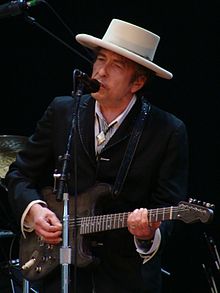 “The answer, my friend, is blowin’ in the wind”, says music legend and spiritual influencer Robert Allen Zimmerman, aka Bob Dylan. He’s now 76 and initially turned down a Nobel Prize but his genius in writing meaningful music keeps on rolling. In six decades, probably no other individual has had a greater impact on modern songwriting that Dylan. His singing ability may be questionable but his words are timeless. He’s sold nearly 200 million albums.
“The answer, my friend, is blowin’ in the wind”, says music legend and spiritual influencer Robert Allen Zimmerman, aka Bob Dylan. He’s now 76 and initially turned down a Nobel Prize but his genius in writing meaningful music keeps on rolling. In six decades, probably no other individual has had a greater impact on modern songwriting that Dylan. His singing ability may be questionable but his words are timeless. He’s sold nearly 200 million albums.
John Lennon said this about Bob Dylan, “I love him because he writes some beautiful stuff. I love his so-called protest things. But I like the sound of him. I didn’t have to listen to his words. He used to come with his acetate and say, ‘Listen to this, John. Did you hear the words?” And I said, “That doesn’t matter, just the sound is what counts. The overall thing.’ You didn’t have to hear what Bob Dylan’s saying, you just have to hear the way he says it, like the medium is the message…I respect him, I respect him a lot.”
Millions more respect Bob Dylan as a musician and spiritual influencer. President Obama called Dylan, “The greatest influence on American music ever.” But perhaps Bob Dylan put it best:
“The times, they are a-changin”
8. Rhonda Bryne
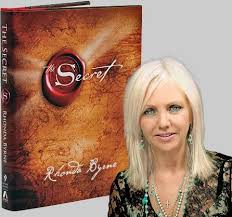 Rhonda Byrne is best-known for writing The Secret which is one of the all-time bestselling self-help books. It’s based on the timeless law of attraction but Byrne had a special way of delivering the message that caught on with a mass of spiritual followers. Since she released The Secret in 2006, the 66-year-old Australian has sold 20 million copies and grossed $300 million in print, audio and film rights.
Rhonda Byrne is best-known for writing The Secret which is one of the all-time bestselling self-help books. It’s based on the timeless law of attraction but Byrne had a special way of delivering the message that caught on with a mass of spiritual followers. Since she released The Secret in 2006, the 66-year-old Australian has sold 20 million copies and grossed $300 million in print, audio and film rights.
Rhonda Byrne was hugely helped by Oprah Winfrey and promoted as a revolutionary spiritual influencer. Byrne’s secret message is that through the power of belief, you’ll achieve everything you wish for. Critics have been harsh on Byrne. The New York Times took exception with Byrne’s repeated reference to quantum mechanics which is a popular new age catch-phrase. Others call Rhonda Byrne’s works “pseudoscience” and denounce her suggestion that applying impenetrable physics to the inner workings of the mind is irresponsible journalism.
Say what you might, but you can’t argue with the secret to Rhonda Byrne’s success as a top spiritual influencer. It obviously works on the minds of millions of Byrne’s fans and continues to keep her elevated after over a decade in the public eye. Rhonda Byrne claims she’s been blessed with success and has this to say:
“So many of us don’t actually believe that we deserve the blessings that life has to offer us. Somehow we believe that those blessings are reserved for other people. But that simply isn’t true. You are as deserving of life’s gifts as anybody else.”
7. Paulo Coelho
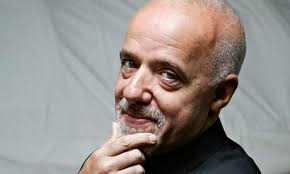 The Alchemist is Paulo Coelho’s breakout book that carried him to spiritual influencing fame. Coelho is 69 and from Brazil. He wrote many books, papers and articles before The Alchemist was published in 1994. Like so many top writers and influencers, Paulo Coelho suffered many rejections before Harper Collins gambled on him. He’s never looked back, nor ever forgot his roots and what led him to spiritually influence millions around the world.
The Alchemist is Paulo Coelho’s breakout book that carried him to spiritual influencing fame. Coelho is 69 and from Brazil. He wrote many books, papers and articles before The Alchemist was published in 1994. Like so many top writers and influencers, Paulo Coelho suffered many rejections before Harper Collins gambled on him. He’s never looked back, nor ever forgot his roots and what led him to spiritually influence millions around the world.
Paulo Coelho was raised in a Jesuit school. He declined the priesthood in favor of being a writer. His parents thought he was crazy and three times committed young Paulo to a mental institute. Three times he escaped and kept on writing. For years he lived as a South American hippie, experiencing life from pot to politics—subversive politics, that is. With The Alchemist, Coelho told a simple story of a simple man seeking enlightenment only to find it right back at home.
Paulo Coelho is recognized by pop stars like Madonna and media influencers like Oprah Winfrey as producing life-changing works that resonate with millions. Coelho is a modest man but recognizes his contribution to culture and advances. It’s now through a virtual Paulo Coelho Foundation with a physical headquarters in Geneva. Coelho says this about culture:
“Culture makes people understand each other better. And if they understand each other better in their soul, it is easier to overcome the economic and political barriers. But first they have to understand that their neighbor is, in the end, just like them, with the same problems, the same questions.”
6. Sadhguru Jaggi Vasudev
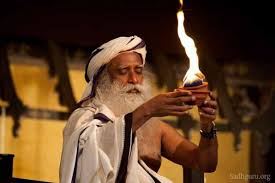 Jaggi Vasudev is an Indian yogi, mystic, visionary, humanitarian and spiritual leader whose life and example influence millions upon millions of people. He started as a yoga teacher and grew up in a moderate Indian family. He’s now 58 and Vasudev’s following grows beyond what Hollywood ratings only imagine. He initially lived as a chicken farmer while he practiced the inner workings of yoga by applying Transcendental Meditation techniques. That led to a slow but steady group of pupils before critical mass took off.
Jaggi Vasudev is an Indian yogi, mystic, visionary, humanitarian and spiritual leader whose life and example influence millions upon millions of people. He started as a yoga teacher and grew up in a moderate Indian family. He’s now 58 and Vasudev’s following grows beyond what Hollywood ratings only imagine. He initially lived as a chicken farmer while he practiced the inner workings of yoga by applying Transcendental Meditation techniques. That led to a slow but steady group of pupils before critical mass took off.
Vasudev explains, “The word ‘yoga’ means ‘union.’ Union means you begin to experience the universality of who you are. For example, today, modern science proves to you beyond any doubt that the whole existence is just one energy manifesting itself in various forms. If this scientific fact becomes a living reality for you—that you begin to experience everything as one—then you are in yoga. When you are in yoga, you experience everything as a part of yourself. That is liberation, that is mukti, that is ultimate freedom.”
Sadhguru Jaggi Vasudev credits the power of the media and internet for amplifying his message and allowing him to be a world leader in spiritual guidance. He’s a technological wizard as well as a mystical one. Here’s Vasudev’s take on technology:
“As there is a technology to create external wellbeing, there is a whole dimension of science and technology to create inner wellbeing”
5. Oprah Winfrey
 If there’s ever been a rags-to-riches story, it’s Oprah Winfrey’s. This incredible lady has spiritually influenced millions of lives and dozens of other spiritual influencers. Oprah is 62 and now a multi-billionaire but she sure didn’t start that way. Oprah bounced from home to home in black Mississippi, wore dresses made from potato sacks and was pregnant at 14. Today, she dines with royalty and is treated as such by peers and followers.
If there’s ever been a rags-to-riches story, it’s Oprah Winfrey’s. This incredible lady has spiritually influenced millions of lives and dozens of other spiritual influencers. Oprah is 62 and now a multi-billionaire but she sure didn’t start that way. Oprah bounced from home to home in black Mississippi, wore dresses made from potato sacks and was pregnant at 14. Today, she dines with royalty and is treated as such by peers and followers.
It’s because Oprah is genuine. Totally genuine. And she looks for that in the thousands of people who pass through her media shows and allow Oprah to promote their books and causes. Oprah emerged as a spiritual influencer over 20 years ago but she’s not a traditional churchgoer. “I have a church with myself: I have church walking down the street. I believe in God force that lives inside all of us, and once you tap into that, you can do anything”, Oprah says.
This phenomenal influencer has something else to say about spiritualism:
“It isn’t until you come to a spiritual understanding of who you are—not necessarily a religious feeling, but deep down, the spirit within—that you can begin to take control.”
4. Eckhart Tolle
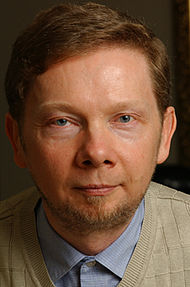 Ulrich Leonard “Eckhart” Tolle is a German-born resident of Vancouver, Canada. He’s 69 and has been a lifelong learner and writer who came to fame in 1997 when his book The Power of Now became a NYT bestseller. Tolle followed with A New Earth. Together, they’ve sold millions of copies and propelled Eckhart Tolle into being one of the top spiritual influencers alive today.
Ulrich Leonard “Eckhart” Tolle is a German-born resident of Vancouver, Canada. He’s 69 and has been a lifelong learner and writer who came to fame in 1997 when his book The Power of Now became a NYT bestseller. Tolle followed with A New Earth. Together, they’ve sold millions of copies and propelled Eckhart Tolle into being one of the top spiritual influencers alive today.
Tolle is another of Oprah Winfrey’s protégées and he earned it by producing timeless works that resonate with masses. Tolle had an unhappy childhood and claims that was the instigator in his life’s work to help other better themselves. He suffered from depression, anger and fear and used mind power through meditation to overcome it. His inner transgression led to a life-changing epiphany where he saw the division between an unhappy past and a fearful future. He decided to forever live in the moment.
Living in the “now” is the core principle of Eckhart Tolle’s works and the message has been well-received by millions and millions of fans who are spiritually influenced by this quiet man. Tolle has his share of critics but that doesn’t bother him. He lives in the moment. And he’s convinced there’s an overall spiritual intelligence at work in the universe. Tolle says:
“I don’t believe in an outside agent that creates the world, then walks away. But I feel very strongly there is an intelligence at work in every flower, in every blade of grass, in every cell of my body. And it is that intelligence that, I wouldn’t say created the universe. It is creating the universe. It’s an ongoing process.”
3. Bishop Desmond Tutu
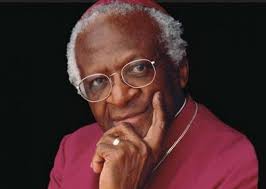 Desmond Tutu is one of the world’s most recognized spiritual influencers. He’s a South African Anglican bishop who is also a leading social rights activist. At 85, Bishop Tutu is highly active in world affairs and keeps company with most world leaders. He’s been awarded the Nobel Peace Prize and the Presidential Medal of Freedom but this holy man feels best at home with the common person.
Desmond Tutu is one of the world’s most recognized spiritual influencers. He’s a South African Anglican bishop who is also a leading social rights activist. At 85, Bishop Tutu is highly active in world affairs and keeps company with most world leaders. He’s been awarded the Nobel Peace Prize and the Presidential Medal of Freedom but this holy man feels best at home with the common person.
Tutu came from humble beginnings in apartheid times and rose through the seminary although he really wanted to become a medical doctor. That just couldn’t happen for a black South African back then. He’s an early riser who equates prayer with the same principles as meditation. Although he’s a staunch Christian, Desmond Tutu doesn’t believe everything in the Bible. “You have to understand is that the Bible is really a library of books and it has different categories of material,” he said. “There are certain parts which you have to say no to. The Bible accepted slavery. St. Paul said women should not speak in church at all and there are people who have used that to say women should not be ordained. There are many things that you shouldn’t accept.”
Bishop Tutu is very liberal on views like gay rights, women’s issues, family planning, assisted dying and abortion. He’s also a strong supporter of efforts to battle climate change. He’s a moderate but tremendously influential in spiritual circles. He also has another interesting quote about the Bible:
“When the missionaries came to Africa they had the Bible and we had the land. They said ‘Let us pray.’ We closed our eyes. When we opened them we had the Bible and they had the land.”
2. The Dalai Lama
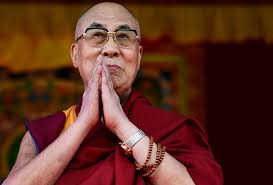 The “Dalai Lama” is actually the title for Tibet’s spiritual leader. The current one who is so well known and loved is the 14th in succession His real name is Tenzin Gyatso and he’s 81 years young. This jolly fellow is an amazing spiritual influencer and he’s absolutely idolized throughout the world. Except in China. There, there’s a price on his head and he’s exiled from his homeland.
The “Dalai Lama” is actually the title for Tibet’s spiritual leader. The current one who is so well known and loved is the 14th in succession His real name is Tenzin Gyatso and he’s 81 years young. This jolly fellow is an amazing spiritual influencer and he’s absolutely idolized throughout the world. Except in China. There, there’s a price on his head and he’s exiled from his homeland.
The Dalai Lama claims three commitments to life. First, he’s a human being and committed to truth and compassion for others. We all want happiness. Not suffering. Second, he’s a spiritual leader—a religious practitioner. He understands that views and beliefs vary but deep down, we’re all the same. Third, the Dalai Lama is a Tibetan. He feels a complete responsibility for his people’s welfare despite he can’t safely return.
Meditation is the basis of the Dalai Lama’s Buddhist practice. He averages about six hours a day in meditative prayer but is not regimented. He’s always ready for a good joke. “Humor makes you happy and healthy”, the Dalai Lama says. “That’s the meaning of life.” He’s repeatedly quoted:
“The purpose of our lives is to be happy.”
1. Pope Francis
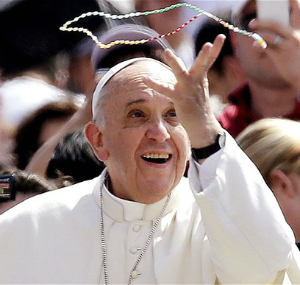 Jorge Mario Bergoglio, the Bishop of Rome and the papal leader of the Roman Catholic Church is listed as the #1 most spiritually influential person alive in the world today. Just the numbers support it. Pope Francis leads 1.285 billion parishioners in every one of the world’s countries. He’s 80 and originally from Argentina. In the Pope’s early life, he worked as a bar bouncer and was an excellent Tango dancer. Rumor is—he had a few girlfriends.
Jorge Mario Bergoglio, the Bishop of Rome and the papal leader of the Roman Catholic Church is listed as the #1 most spiritually influential person alive in the world today. Just the numbers support it. Pope Francis leads 1.285 billion parishioners in every one of the world’s countries. He’s 80 and originally from Argentina. In the Pope’s early life, he worked as a bar bouncer and was an excellent Tango dancer. Rumor is—he had a few girlfriends.
Pope Francis is a reformer but cautiously so. He’s exceptionally bright and considered a chess player within church ranks—always planning careful moves in his actions. He has some tough issues to tackle as the Roman Catholic Church has strict, conservative views on celibacy, women clergy, gay rights, abortion and contraceptives. He’s a simple man in materialism, refusing to move into the papal suite and prefers to stay in a small Vatican apartment. He’s also an accomplished chef who makes a mean paella.
Although the Pope is obviously a devout Christian and the spiritual leader who influences over a billion people, he’s receptive to learning opposing views and freely chats with the likes of the Dalai Lama and Desmond Tutu. He even recently welcomed Donald Trump. Pope Francis fervently believes in God but not quite how you might think:
“I believe in God – not in a Catholic God; there is no Catholic God. There is God, and I believe in Jesus Christ, his incarnation. Jesus is my teacher and my pastor, but God, the Father, Abba, is the light and the Creator. This is my Being.”
_ _ _
 So that’s a wrap on Our Top 20 Spiritual Influences Alive Today. At least according to Watkins Mind Spirit Body magazine. You see they range from 19 to 89 in age with 70 being the average. They’re male and female—black, white and brown. They’re fabulously wealthy. Some with money. Some without materials. But all are flush in spirit. They’re diverse in backgrounds but common in communicating a simple message that real wealth is being happy and healthy in life.
So that’s a wrap on Our Top 20 Spiritual Influences Alive Today. At least according to Watkins Mind Spirit Body magazine. You see they range from 19 to 89 in age with 70 being the average. They’re male and female—black, white and brown. They’re fabulously wealthy. Some with money. Some without materials. But all are flush in spirit. They’re diverse in backgrounds but common in communicating a simple message that real wealth is being happy and healthy in life.
How this post started is that I’m a lifelong student of health and happiness. Right now, I’ve got both. What I don’t have is something to help others find the same. I feel I can offer 60 years of life experience where I’m only now getting a grip on reality. For many years, I’ve recognized and studied the interconnected concept of consciousness. It started with a personal experience in 1985 where death brushed me and upped my curiosity from exposure in the Native American sweat lodge culture. It was profound. Not just spiritually influencing. It made me realize there was a truth to why we behave and feel the way we do. That led to my first book No Witnesses To Nothing and now to my newest project Interconnect — Finding Your Place in the Conscious Universe.
It’s meant to be a simple, straightforward look at universal forces that interconnect us within a unified existence. It’s not preaching religion but does touch on spirituality. It’s an attempt to make sense of physical and spiritual forces that affect our lives. It’s about influencing others to reflect on their happy place. Interconnect — Finding Your Place in the Conscious Universe is ready in the fall of 2017. If you’d like a free advance reading copy (ARC), email me at garry.rodgers@shaw.ca and I’ll be happy to send you a digital copy.
Also, if you enjoyed this post on Our Top 20 Spiritual Leaders Alive Today, please share it on social media. The link buttons are right beside you. Comments are appreciated 🙂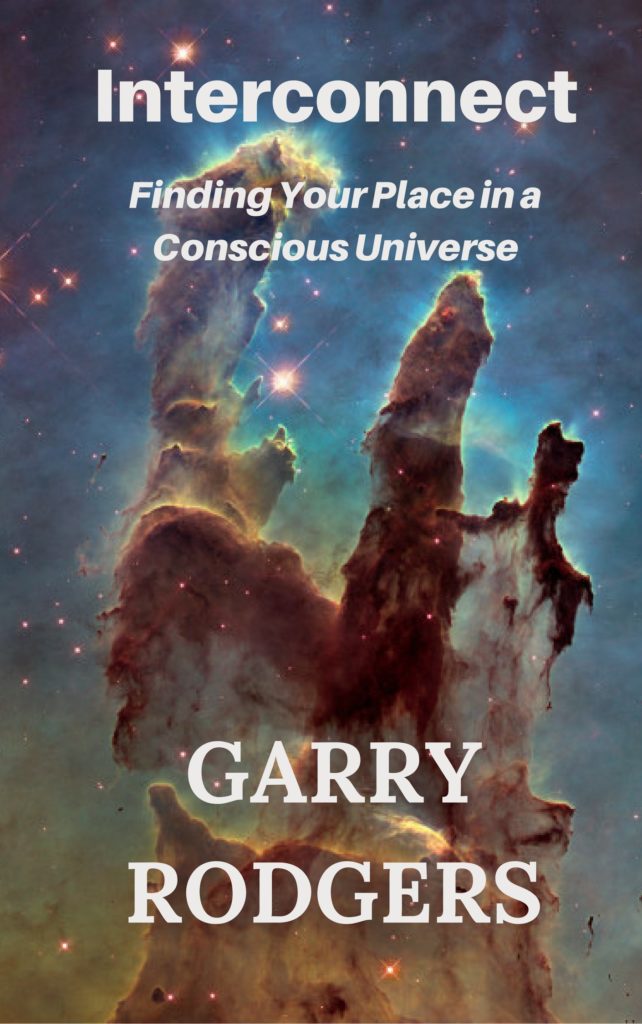
 There’s intense interest around girl-train thrillers. Paula Hawkins’ The Girl On The Train sold millions of copies. Now it’s a motion picture. The girl-trend started with Gillian Flynn’s Gone Girl. Then The Girl in the Ice by indie author Robert Bryndza took off. The girl-list goes on. The Girl You Lost, Girl In The Dark, The Good Girl and, of course, The Girl With The Dragon Tattoo series come to mind. I haven’t read them but respect the girls have done well in crime fiction.
There’s intense interest around girl-train thrillers. Paula Hawkins’ The Girl On The Train sold millions of copies. Now it’s a motion picture. The girl-trend started with Gillian Flynn’s Gone Girl. Then The Girl in the Ice by indie author Robert Bryndza took off. The girl-list goes on. The Girl You Lost, Girl In The Dark, The Good Girl and, of course, The Girl With The Dragon Tattoo series come to mind. I haven’t read them but respect the girls have done well in crime fiction. The Greyhound made a rest stop about a half hour earlier. Vince Li was sitting near the front. He got off, had a smoke, then reboarded. Now Li moved toward the back. Carefully, he looked at each passenger before reaching the second row from the rear. Tim McLean sat on the passenger side by the window. The aisle seat beside him was vacant.
The Greyhound made a rest stop about a half hour earlier. Vince Li was sitting near the front. He got off, had a smoke, then reboarded. Now Li moved toward the back. Carefully, he looked at each passenger before reaching the second row from the rear. Tim McLean sat on the passenger side by the window. The aisle seat beside him was vacant. Women shrieked. Men puked. Little kids cried as teens tried capturing it on phones. Then Li, expressionless behind sunglasses, came for the door—presenting Tim’s decapitated head. Presence of mind from the driver prevented Li’s escape into the crowd. He blocked the door but police were miles away. A passing trucker gave men in the group tools as weapons in case the psycho got out.
Women shrieked. Men puked. Little kids cried as teens tried capturing it on phones. Then Li, expressionless behind sunglasses, came for the door—presenting Tim’s decapitated head. Presence of mind from the driver prevented Li’s escape into the crowd. He blocked the door but police were miles away. A passing trucker gave men in the group tools as weapons in case the psycho got out. The crime scene was processed and witnesses were isolated. They took Li to a secure hospital. He’d also been injured in his attack—standard police procedure even for as bizarre a crime as this. But the aftermath was awful.
The crime scene was processed and witnesses were isolated. They took Li to a secure hospital. He’d also been injured in his attack—standard police procedure even for as bizarre a crime as this. But the aftermath was awful.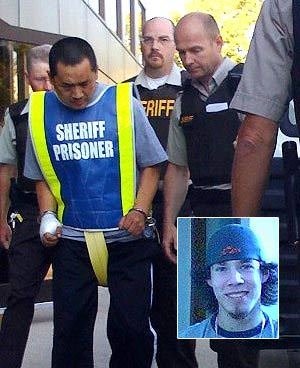 Vince Li was born and raised in China. He earned a degree in computer science then immigrated to Canada in 2001. He settled in Winnipeg and worked in Edmonton. Over time, Li’s marriage declined and they separated. Li had one brush with police for peculiar behavior. Records are sketchy about his mental assessments. Seems he was an undiagnosed schizophrenic not prescribed the right meds. Nor was he taking any when he boarded the Greyhound bus.
Vince Li was born and raised in China. He earned a degree in computer science then immigrated to Canada in 2001. He settled in Winnipeg and worked in Edmonton. Over time, Li’s marriage declined and they separated. Li had one brush with police for peculiar behavior. Records are sketchy about his mental assessments. Seems he was an undiagnosed schizophrenic not prescribed the right meds. Nor was he taking any when he boarded the Greyhound bus. It’s the overall picture that’s never been put to rest. That includes whether it was conclusively proven that Li was out of his mind and had no concept of what he was doing to Tim was wrong. It’s also the overall concepts of punishment, holding an offender accountable no matter what their mental state and ensuring the public is properly protected from future danger.
It’s the overall picture that’s never been put to rest. That includes whether it was conclusively proven that Li was out of his mind and had no concept of what he was doing to Tim was wrong. It’s also the overall concepts of punishment, holding an offender accountable no matter what their mental state and ensuring the public is properly protected from future danger. Here’s where the system is flawed. It’s made of people with law degrees and medical degrees. Particularly psychiatric degrees. These guys can get crazier than The Guy on the Greyhound Bus.
Here’s where the system is flawed. It’s made of people with law degrees and medical degrees. Particularly psychiatric degrees. These guys can get crazier than The Guy on the Greyhound Bus. It took a bit to get Vince Li’s medication right and stabilize him. He wasn’t in a normal, functioning state of mind when he killed Tim McLean. But he wasn’t truly out of it. Vince Li knew exactly what he was doing and he remembered it. He described Tim’s gruesome murder detail-by-detail to his forensic psychiatric team just as a serial killer confesses to detectives.
It took a bit to get Vince Li’s medication right and stabilize him. He wasn’t in a normal, functioning state of mind when he killed Tim McLean. But he wasn’t truly out of it. Vince Li knew exactly what he was doing and he remembered it. He described Tim’s gruesome murder detail-by-detail to his forensic psychiatric team just as a serial killer confesses to detectives.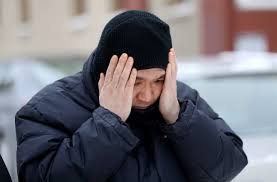 Today, Vince Li is a free man. There’s no system oversight. He’s not accountable for his crime in any way. It’s exactly like it never happened. That’s plain wrong.
Today, Vince Li is a free man. There’s no system oversight. He’s not accountable for his crime in any way. It’s exactly like it never happened. That’s plain wrong. “Li has an incurable disease that makes him do terrible things,” Carol says. “I believe he needs to be in an institution that addresses those needs. I don’t think it matters if you’re mentally ill or not. If you kill someone, you should lose your freedom. Period.”
“Li has an incurable disease that makes him do terrible things,” Carol says. “I believe he needs to be in an institution that addresses those needs. I don’t think it matters if you’re mentally ill or not. If you kill someone, you should lose your freedom. Period.”





